The Insecurity of Belonging to a Minority Religion
Unlike the Abrahamic religions, Hinduism is polytheistic and not a religion with one book. Multiple gods, multiple ways of worship, discussions, discourses, and debates are core to Hinduism’s DNA.
Total Views |
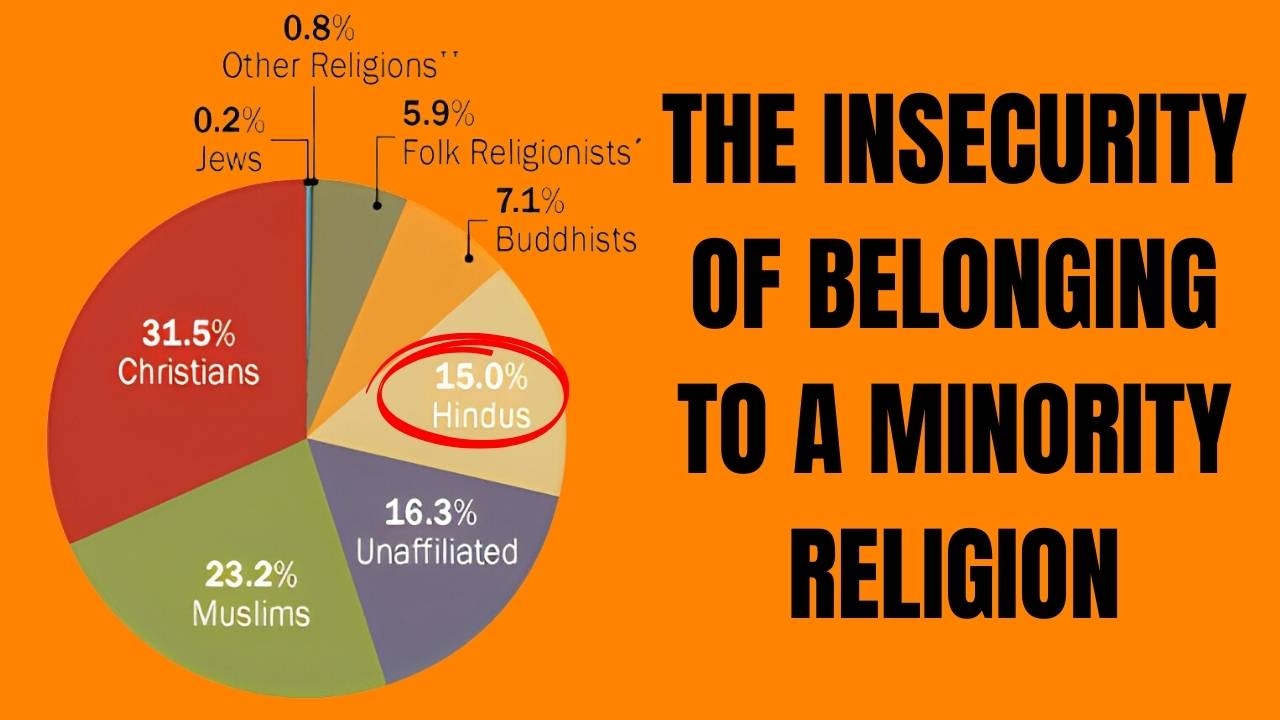
As per a 2017 Pew Research Center analysis of data covering 199 countries and territories around the world, more than 80 countries favour a specific religion, either as an official, government-endorsed religion or by affording one religion preferential treatment over other faiths.
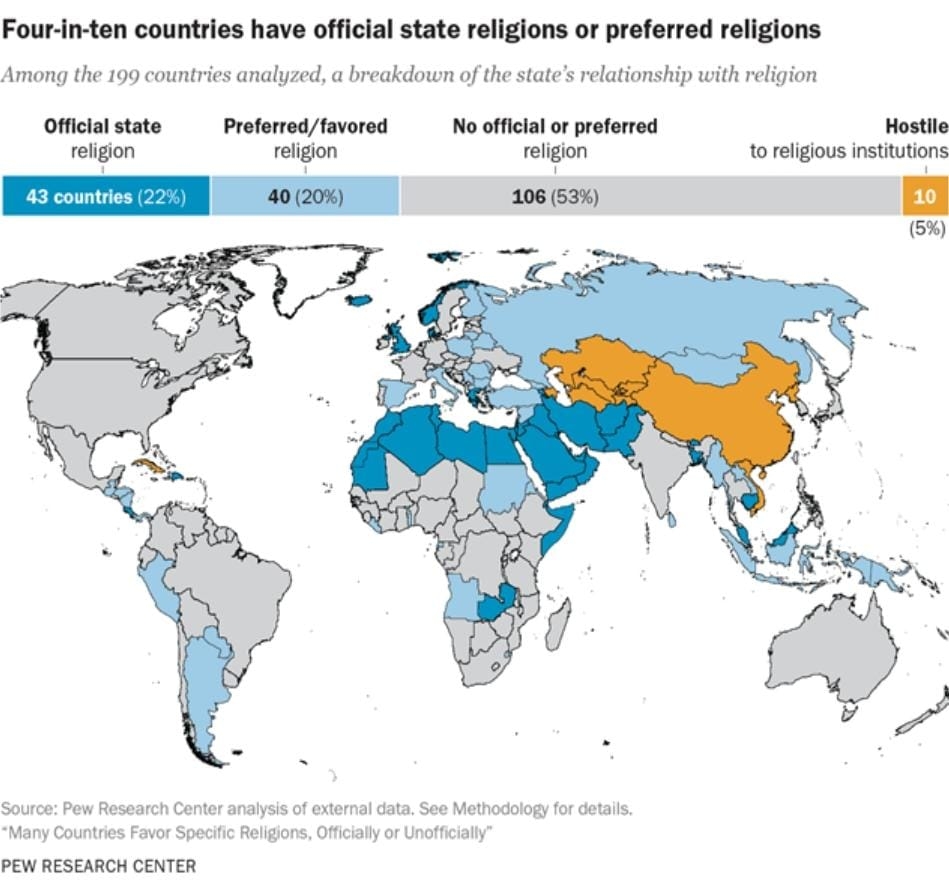
As per the same analysis, Islam is the most common government-endorsed faith, with 27 countries officially enshrining Islam as their state religion. Similarly, 13 countries designate Christianity or a particular Christian denomination as their state religion, with an additional 40 governments around the globe unofficially favouring a particular religion. Among these governments, the preferred faith is a branch of Christianity. Indeed, Christian churches receive preferential treatment in more countries—28—than any other unofficial but favoured faith.
Furthermore, Buddhism is the state religion in 2 countries (Bhutan and Cambodia), and Israel is officially a Jewish state. But there is not even one country across the world that has Hinduism as the official or state religion.
Let us look at another global statistic (as shared on Wikipedia):
- Followers of Christianity: 2.3 Bn (31% of the world population)
- Followers of Islam: 1.9 Bn (25% of the world population)
- Followers of Hinduism: 1.1 Bn (15% of the world population)
As a practising Hindu, I am worried. My religion is only 15% of the world’s population and one of the most misunderstood. Hinduism, or Sanatana Dharma, is possibly the oldest existing religion and one that extended from Afghanistan (Gandhar) to Indonesia and beyond. However, today it has shrunk to India and Nepal, both of which are secular states and do not have any official or state religion.
Unlike the Abrahamic religions, Hinduism is polytheistic and not a religion with one book. Multiple gods, multiple ways of worship, discussions, discourses, and debates are core to Hinduism’s DNA. The cornerstone of Hinduism (which has remained unchanged) is to strive and become a better version of oneself, to come closer to the all-encompassing God. The religion views the relationship between a believer and God as one that is deeply personal and unique to them. The devotee can choose the path he/she wants to follow for his/her spiritual upliftment.
This means that acceptance of diverse views, tolerance of seemingly different norms, and the ability to peacefully coexist are ingrained within the religion. People can choose to read the Bhagavad Gita, the Upanishad, or the Shiksha Patri or choose not to read a book at all. They can choose to worship God as a naughty, butter-loving boy (Krishn), a virtuous, righteous king (Ram), a warrior goddess on a tiger (Durga), or any other way that they feel close to the Almighty.
Since acceptance of diverse views is so core to our ethos, Bharat—the birthplace of Hinduism—is possibly the only land that gave shelter to all those who came on its shores—be it the Parsis who fled Persia due to religious persecution in the 8th and 10th centuries or the Buddhists who continue to flee Afghanistan even today in the 21st century.
Hindus do not start wars. Hindus do not believe in conversion. Hindus are possibly the only religious cohort that has not waged war on any other religion. Wikipedia defines a religious war or a holy war as a conflict that is primarily caused or justified by differences in religion and beliefs. Some of the deadliest holy wars in history have been the Crusades, the Thirty Years War, the Israel-Palestine Conflict, the Yugoslav Wars, the Iran-Iraq War, and civil conflicts in multiple states in the Middle East and Africa. The common observation in all of them is that the wars are being fought between proponents of the Abrahamic religions and not by Hindus.
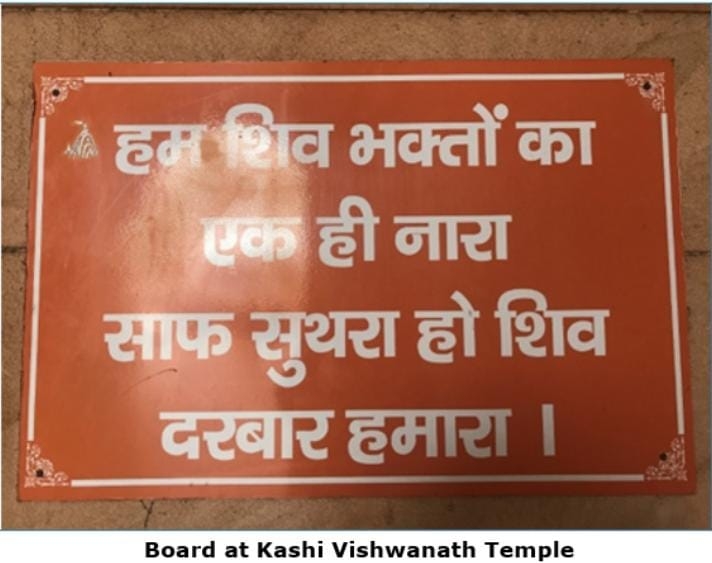
So, while I feel very proud that I belong to a peace-loving religion, I also feel worried for the very same reason. My religion does not encourage initiating wars in the name of God. But that has not kept my land safe from aggressors. The invasions, systemic and repeated plunder, and colonisation of Bharat by mercenaries from foreign lands have bled my nation in multiple ways. Hindu women got raped, men were killed, and families were forced to convert to an alien religion. We see the same happening in our neighbouring countries even now (the Hindu population in Pakistan has reduced from ~20% in 1947 to ~2% in 2023 and from ~30% in 1947 to ~ 9% in 2023 in Bangladesh).
As someone belonging to this minority religion, I worry. My religion is peace loving, but many others are not. My religion believes in coexistence; many others do not. My religion preaches that different ways can lead to the same God; many others believe only their way is right. My religion encourages debates; many others silence any questioning voice. Today the only safe land left for me is my country, but for how long? If this land is attacked again, where will Hindus like me go?
Hinduism teaches us to be more responsible and conscious citizens. The above board at Kashi Vishwanath temple premises is a reinforcement of the same.
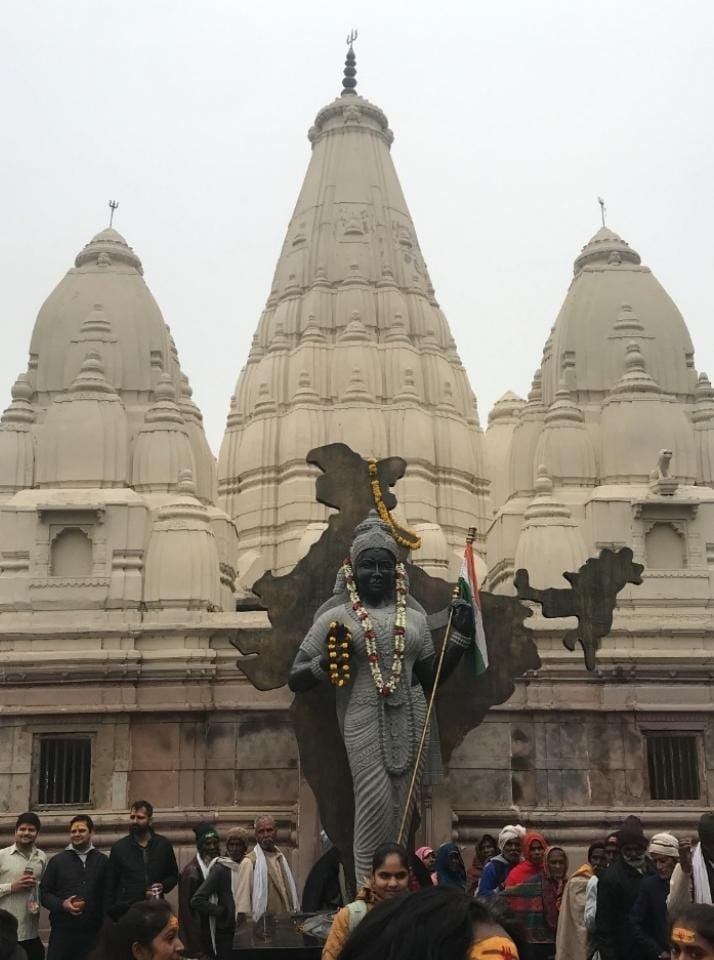
Bharat is not a Hindu country. Hinduism is not the state or official religion of Bharat. Yet our temples encourage us to respect and love our land. The above image is from the Kashi Vishwanath temple corridor.
Article by
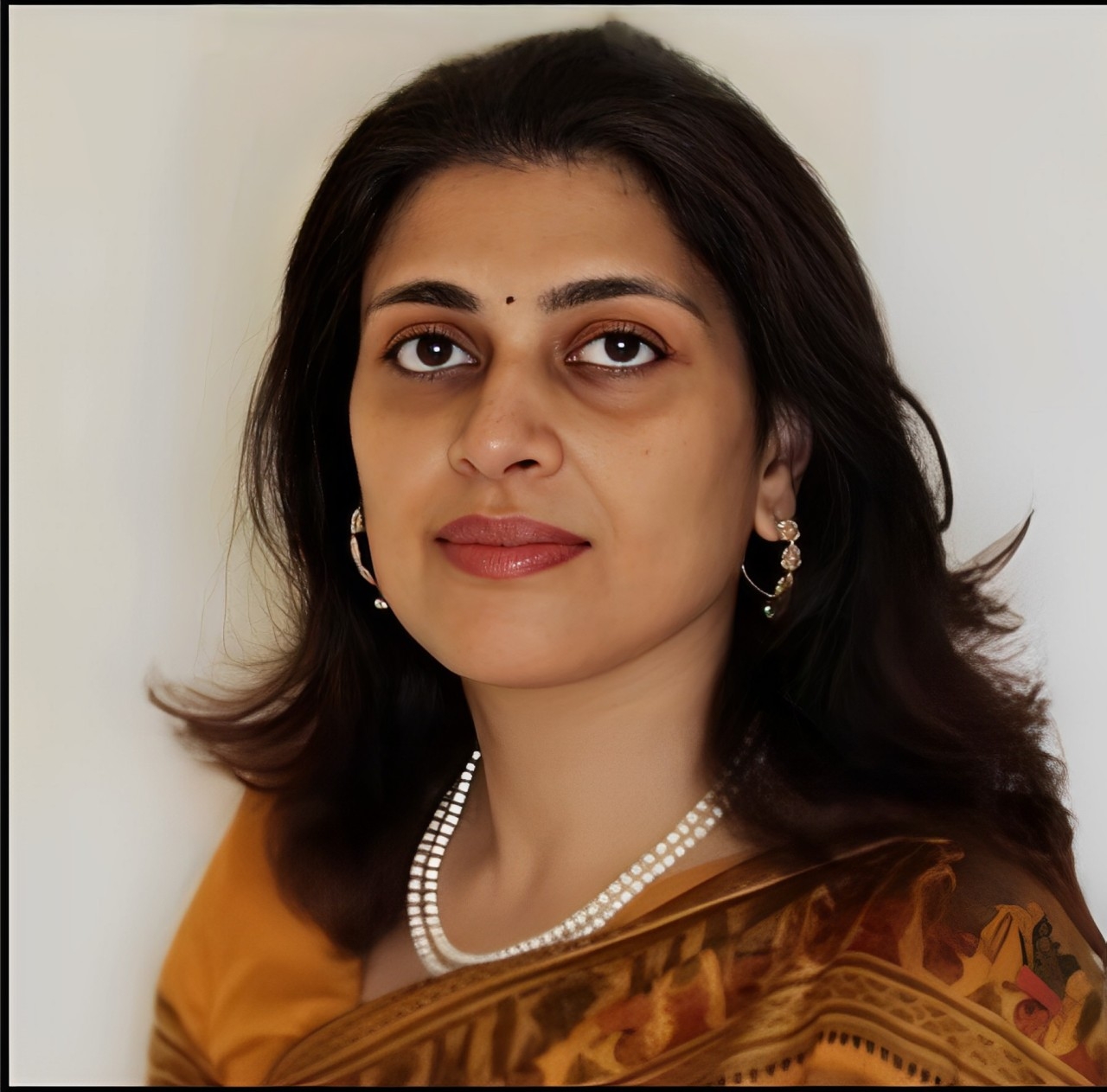
Aditi Hingu
Aditi has more than two decades of experience in the corporate world. She works as a strategic marketing consultant and has done projects across innovation, category & brand development, communication, media, and research for Indian and multinational companies. She has also significant experience in coaching and training across diverse functions.

